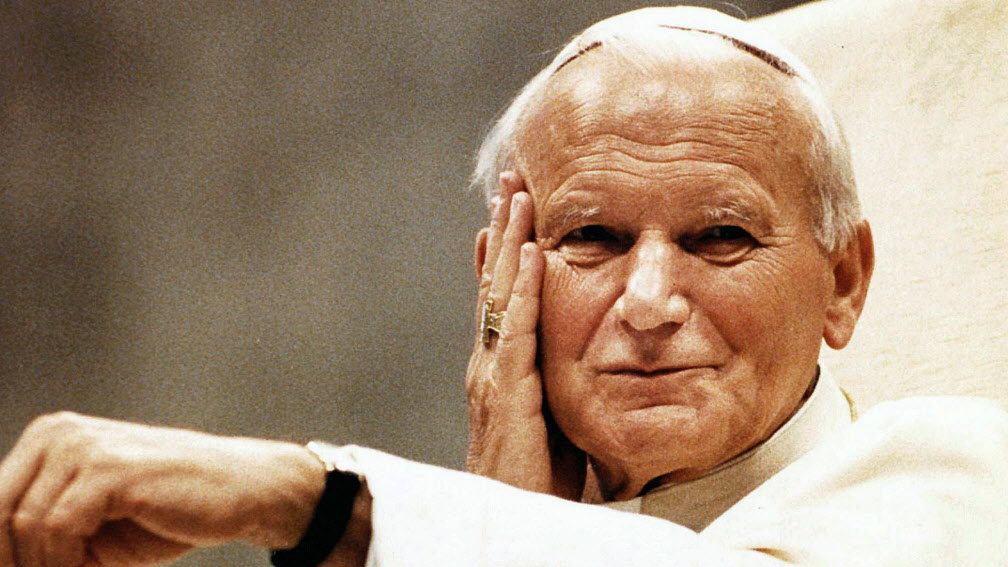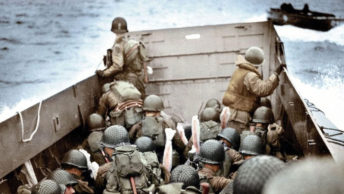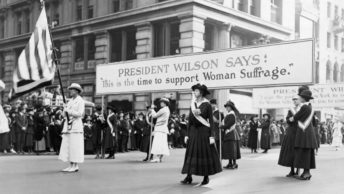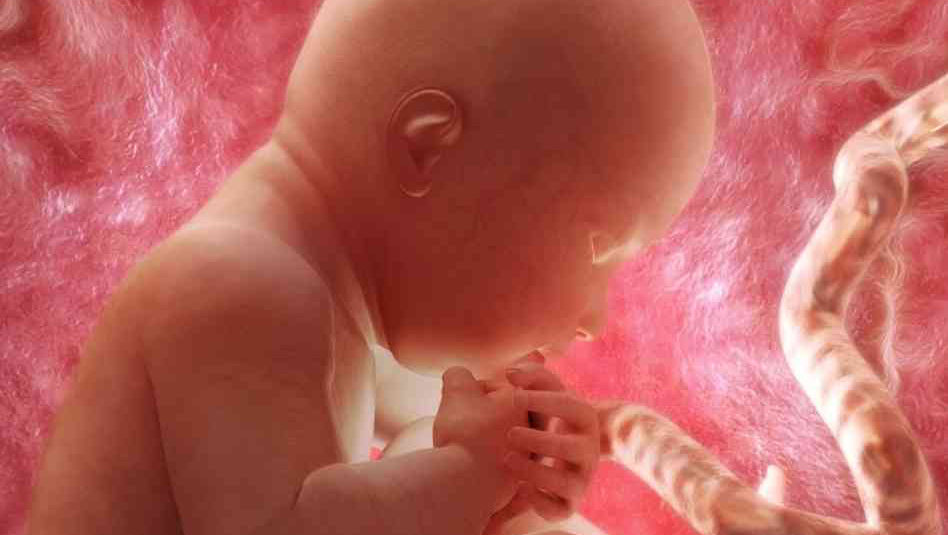In his perceptive booklet, The Abolition of Man, the late Christian philosopher, C. S. Lewis, lamented that “we make men without chests and expect of them virtue and enterprise. We laugh at honor and are shocked to find traitors in our midst.” As Lewis so graphically put it, “The head rules the belly through the chest.” A man’s chest is where virtuous training takes place. It is the seat of character, a figurative connection between the cerebral and the visceral. Modern society is overburdened with men without chests, because it slavishly favors the belly over the chest.
C.S. Lewis was writing about the need for more virtue in public life. During the second Clinton administration when the President was found to have been a habitual philanderer and a perjurer, his apologists decried the necessity of moral character as a job requirement. They said it did not matter what Clinton did in his private life. As long as he favored abortion and women’s rights, he was a great President in the eyes of his supporters.
Visions of Hell
Lewis wrote at about the same time that existentialists like Ernest Hemingway were sneering at the virtues of loyalty, honor, and other abstract notions, generally associated with warfare. While no one could question Hemingway’s virility, he emerged from a generation of writers who had lost their faith in the patriotic and religious virtues that had given sustenance and value to their fathers’ lives. Their writings gave birth to subsequent generations whose literature was void of spiritual meaning. Hemingway’s code heroes lived by an existential ethic. He was an introspective forerunner to the more recent pulp fiction of such moderns as Robert Ludlum. While Hemingway’s heroes had some rudimentary semblance of integrity, Ludlum’s heroes had a purely shallow grasp of their own alienation in a fierce and meaningless world. While Hemingway’s characters projected a loss of faith and a rejection of God, Ludlum’s heroes lived singularly by the laws of survival with a perceivable absence of God. Both heroes have a literary kinship with T. S. Eliot’s The Hollow Men. Unlike Graham Turley, they were veritable action heroes, who could only focus on survival and sensual pleasure.
The late Bishop Fulton J. Sheen once quipped that an “atheist was a man with no invisible means of support.” The French existentialist John Paul Sartre defined Hell as other people. The atmosphere created by existential writers and film producers creates a modern vision of Hell, or simply put life without God.
The Rocking Hand
Some of the blame can be laid at the feet of the radical feminists who have turned men into spineless weaklings, devoid of character and self-discipline. There is no greater truism than the idea that the hand that rocks the cradle rules the world. Babies are virtual blank slates upon which the mother’s nurturing influence can implant a host of virtues, and disciplines, as well as vices and neuroses that can result in sainthood or depravity. Many women have put their careers ahead of their children who have in turn become near wards of day care. Some female educators characterize every energetic boy as suffering from Attention Deficit Disorder (ADD). These same educators want to eliminate competition, score keeping, and imaginary war games from the playground. All this fosters the deterioration of masculine symbols and rituals, stunting their manly development. The rocking hand of feminism has created an emasculated generation of men who do not know how to be men of strength in body and character. They woefully fear conflict, women, and social disapproval.
Modern women have wantonly accepted the philosophical underpinnings of Marx, Gramsci, and Betty Friedan. These kinds of women can only live with docile, passive men who support and encourage them to compete in the world of politics, law enforcement, and even investigative journalism. Phyllis Schlafly’s book, Feminist Fantasies, has several examples of men who could not stay married to women who were more deter- mined to rule the board room than the home. These women have turned the volume up so loud on Helen Reddy’s battle cry of hear us roar, that real men have gone deaf. A nation of strong, virile women and weak men cannot last long against the dedicated ene- mies of freedom, Christianity and private property.
A Logical Conclusion
Gender confusion has become a problem of epic proportions, especially for men. There are men who are not only empty on the inside but also suffer from an external disorder that has undermined their relationships with women. In the March 2004 issue of Chronicles Magazine, Thomas Fleming attributes much of this problem to homosexualism and the Renaissance’s revival of the homoeroticism of ancient Greek culture as a weapon against the Catholic Church. While the Enlightenment catered to fornicators and adulterers, Voltaire felt that experiments with sodomy would accelerate the complete breakdown of the traditional barriers between normal behaviors and perverted pleasures in 18th century France.
French aristocrat, Marquis de Sade, proudly became the personification of experiments in perversion. He took the Enlightenment to its logical conclusion. Since God did not exist, religion and morality were mere inventions to suppress mankind. Without God, de Sade was free to do anything to God’s creatures his will dictated. Torture, rape, sodomy, and sexual orgies were part of being human. Sensual pleasure became the measure for the rest of his life. He was a sexual addict whose slavery to sin and perversion resulted in his spending most of his adult life in jail.
Metro Link
Many heterosexual males have eagerly enlisted in the Sadean Revolution. While still preferring women, these men have blurred the natural differences between male and female by adopting the physical characteristics and couture of the homosexual lifestyle.
In the same issue of Chronicles Magazine, Thomas Fleming laments “I cannot be the only older man in America who finds most young men unbearably epicene,” that is partaking in the characteristics of both sexes. Fleming is disgusted that the leading men of the current film studios project a masculinity that is highly tempered, if not blurred by similar effeminate characteristics. He wonders out loud about the missing swagger of a John Wayne, the virility of a Sean Connery or the baritone machismo of a Gregory Peck.
Fleming has recognized a new social trend, called the metrosexual. A metrosexual is a man who likes women but spends as much time as they fluffing his hair, using perfume, and selecting the perfect outfit. Metrosexual is the code word used to destigmatize and celebrate the effeminate. Ann Coulter calls them girlie boys, who have invaded the culture like a pack of deviant body snatchers.
Metrosexuals are the missing link that inexorably bonds homosexuals to mainstream culture.
The feminization of the straight man in movies and politics is a more dangerous phenomenon than the great influx of homosexuality into American culture. Real men with chests of character and faith might be the last impediment to the decline and fall of Western civilization.
Men for All Seasons
Western culture has many examples of men who should be emulated. Brave men, such as St. Thomas More provide a stark contrast to Pontius Pilate who willingly shed the blood of an innocent man for his own political viability. Real men abound in the military, in sports arenas and in the pulpits of many churches. They have served admirably and even heroically in all the wars of the past and present centuries. Many remember the legendary heroics of the late actor Audie Murphy, who won the Congressional Medal of Honor in World War II. Mel Gibson lionized the Vietnam War heroics of devout Catholic Lt. Colonel Hal Moore in his movie We Were Soldiers. The terrorist attacks on 9/11 produced countless examples of Judeo-Christian character shining through the blinding clouds of smoke and fire. Hundreds of firemen, policemen, rescue workers and chaplains laid down their lives in hope of saving the lives of their fellow human beings. The daily newspapers glitter with countless examples of uncelebrated people who have gladly risked their lives for their neighbors. Others have stood tall and walked long in the moral fight against abortion, euthanasia, and a culture that is adrift in a sea of disorder and self-destruction.
Pee Wee Reese and Cal Ripken, Jr. may have just been baseball players but over the years we have witnessed in them a dedicated character that could have illuminated the entire playing field during a night game. Their quiet moral presence reached beyond the human limitations of hits and errors. Like Simon of Cyrene, Reese helped carry the cross of racial persecution that afflicted Jackie Robinson in the late 1940s. As a player Ripken provided the stature of a real man with a moral chest that served as a bright beacon in a sport that has been rife with racism, drugs, promiscuity and gambling.
Men of great intellectual prowess have always been impressive. Bishop Sheen was a warm friendly man of normal proportions. When he spoke of God, the Catholic Church, and in opposition to atheistic Communism, he stood ten feet tall and had a chest the size of Manhattan. The burning presence of God’s love exuded from his words like hot lava from an active volcano. In his classic manifesto, The Conservative Mind, Russell Kirk wrote volumes of truth that launched an overwhelming torrent of ideas against the liberal monopoly on American thinking. A nation that can produce men like these will always have hope.
Pope John Paul II recognized this growing concern in his Apostolic Exhortation, November 22, 1981 on the Role of the Christian Family in the Modern World, Familiaris Consortio. As he wrote: “Above all where social and cultural conditions so easily encourage a father to be less concerned with his family. . .efforts must be made to restore socially the conviction that the place and task of the father in and for the family is of unique and irreplaceable importance.” (25) This is the supreme challenge of real men everywhere.








